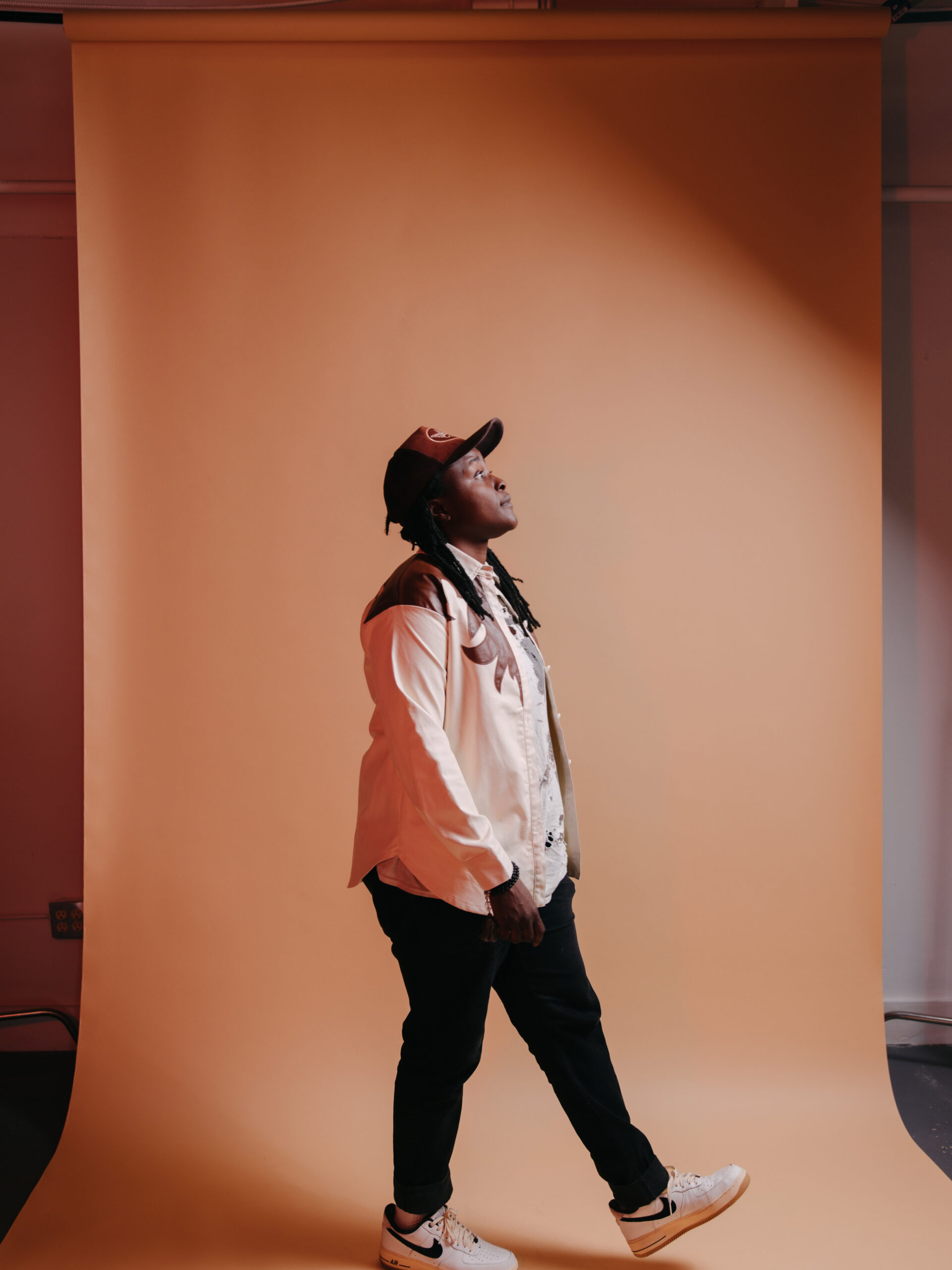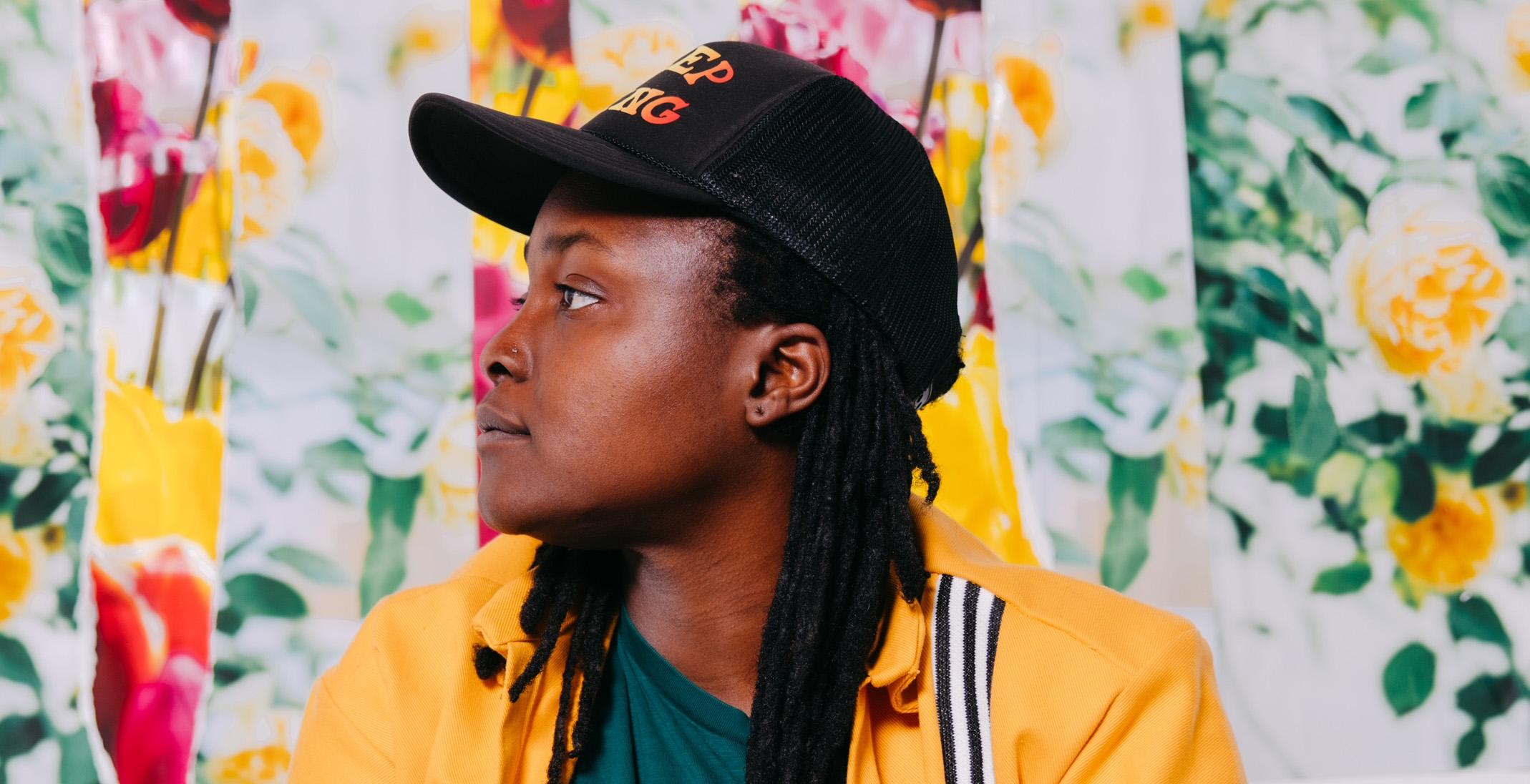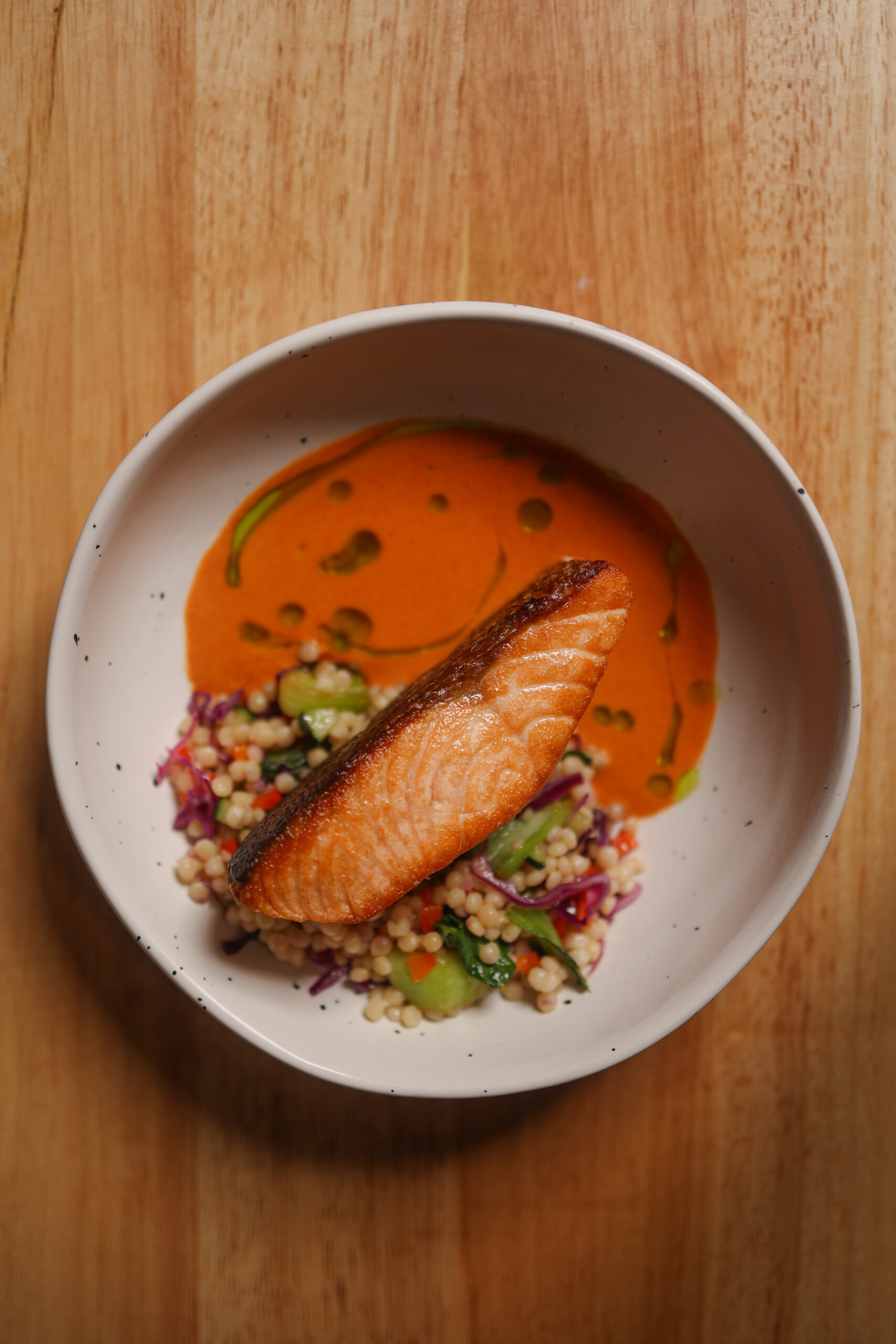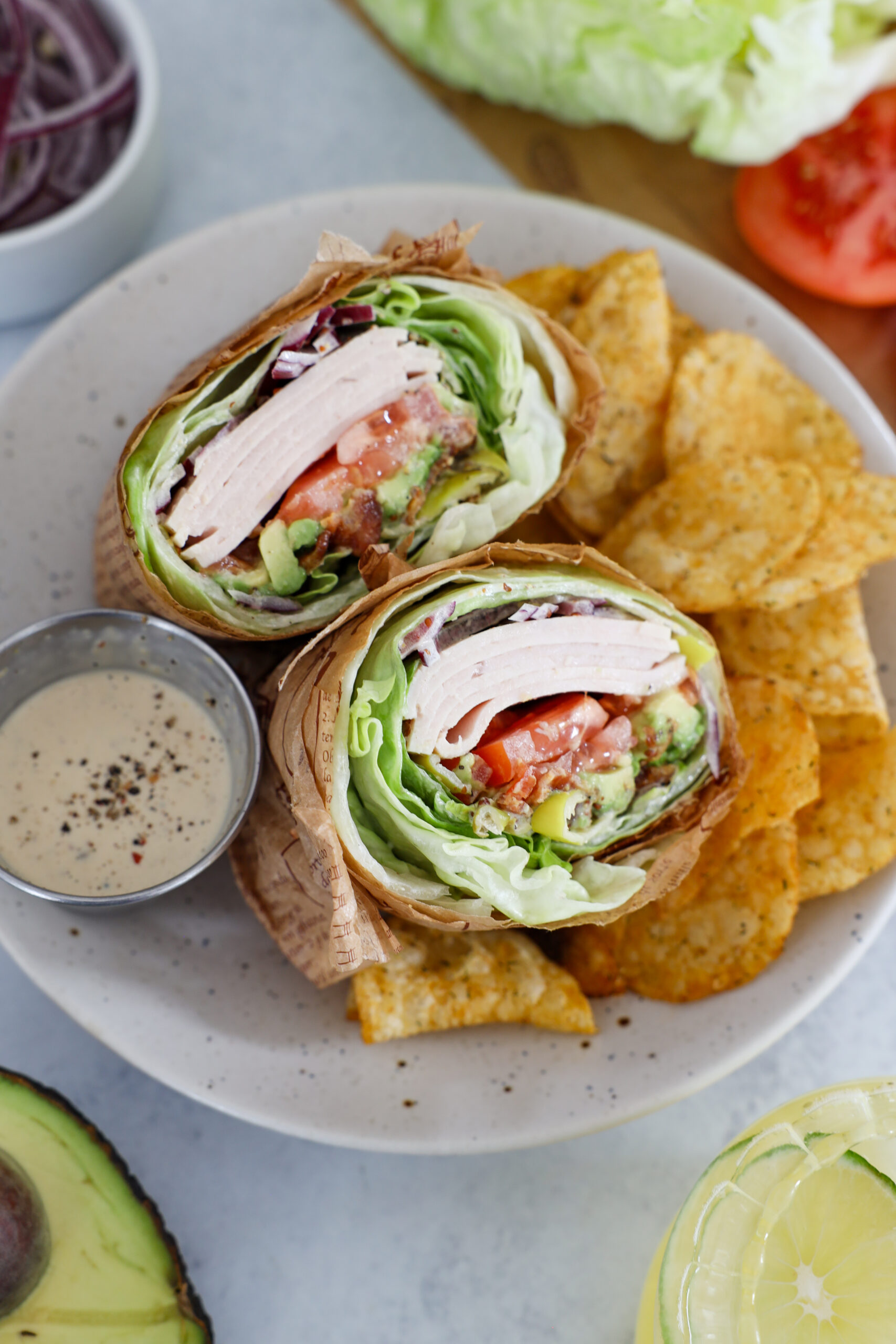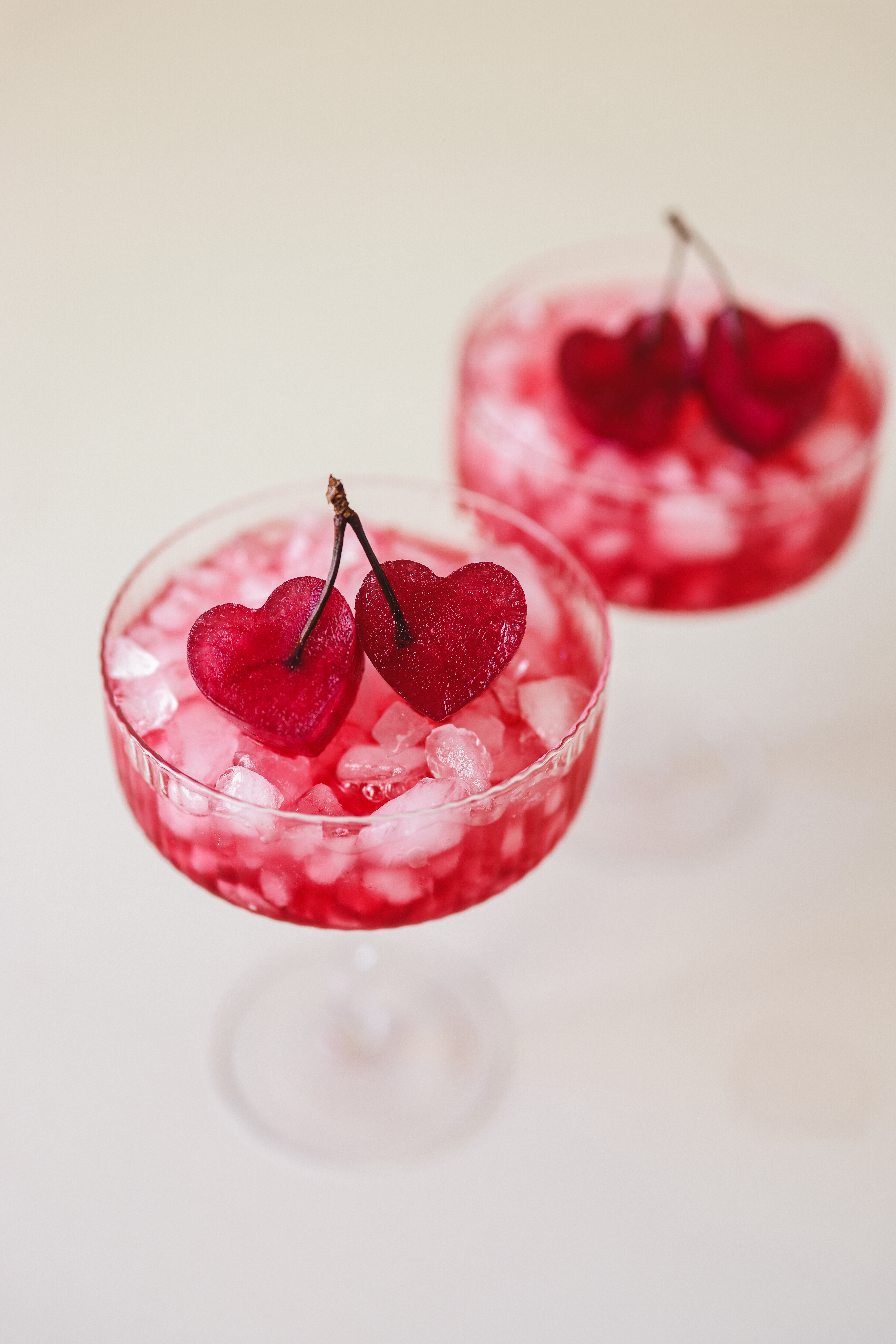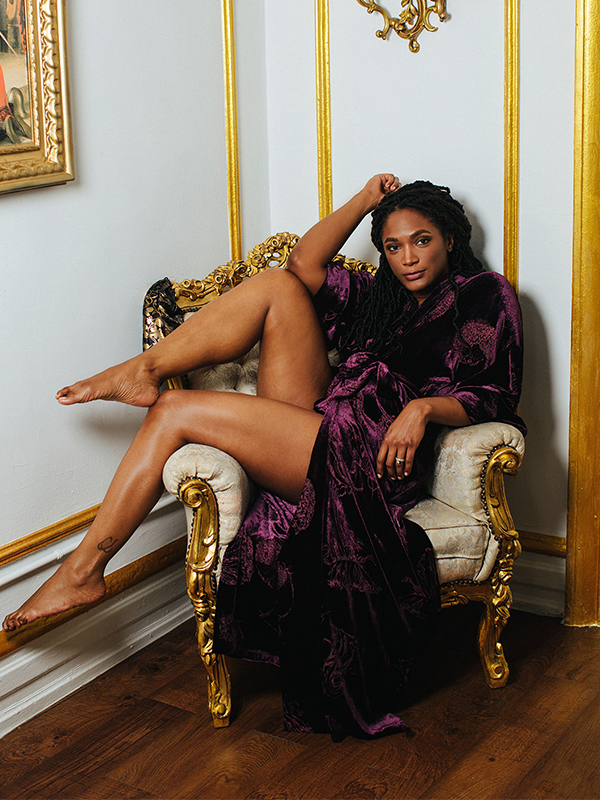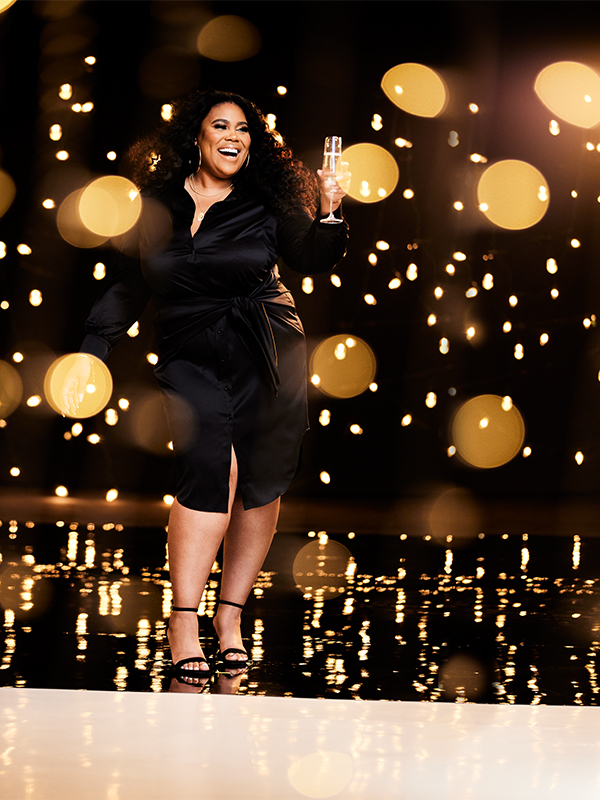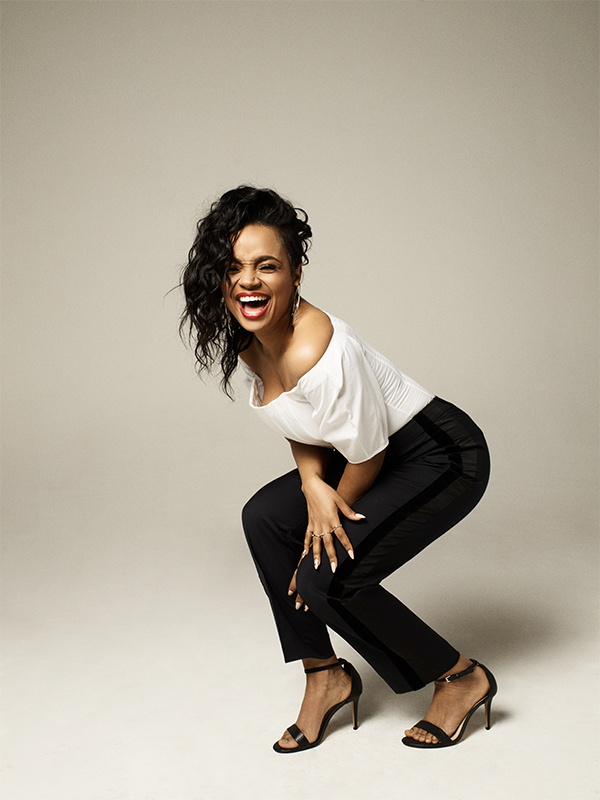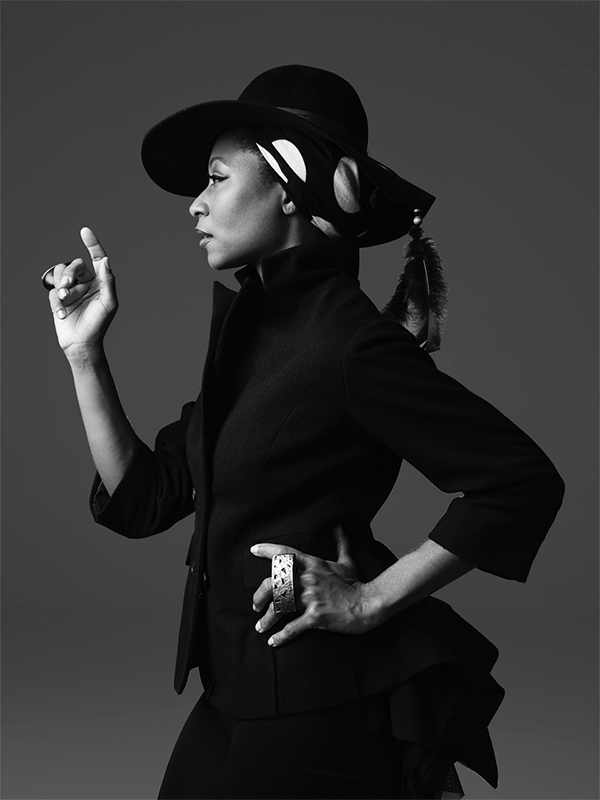In a world that doesn’t always make it comfortable or easy to be yourself, musician Joy Oladokun believes that the things that make us different don’t have to divide us (and if we’re taking stock, we probably have way more things in common than we realize).
With her current tour, “Catch Me While You Can,” Oladokun continues to show up as her authentically queer and admittedly quirky self. She prides herself on being a powerful champion for embracing the things that connect us rather than the differences that far too many still use to divide.
Oladokun’s 2021 album In Defense of My Own Happiness, which received accolades as one of the best albums of the year, is equal parts introspective and insightful. Her collection of work to date also includes uplifting and empowering gems like “Pride” from her fourth album, Proof of Life. Oladokun performs to entertain, but also to impact: In 2022, for example, she performed at the White House in support of the Respect for Marriage Act. Authenticity and its byproducts—independence and empowerment—is prime for Oladokun, who came out to her Nigerian parents at 22 years old and married her partner in April of this year in her hometown of Nashville, Tennessee.
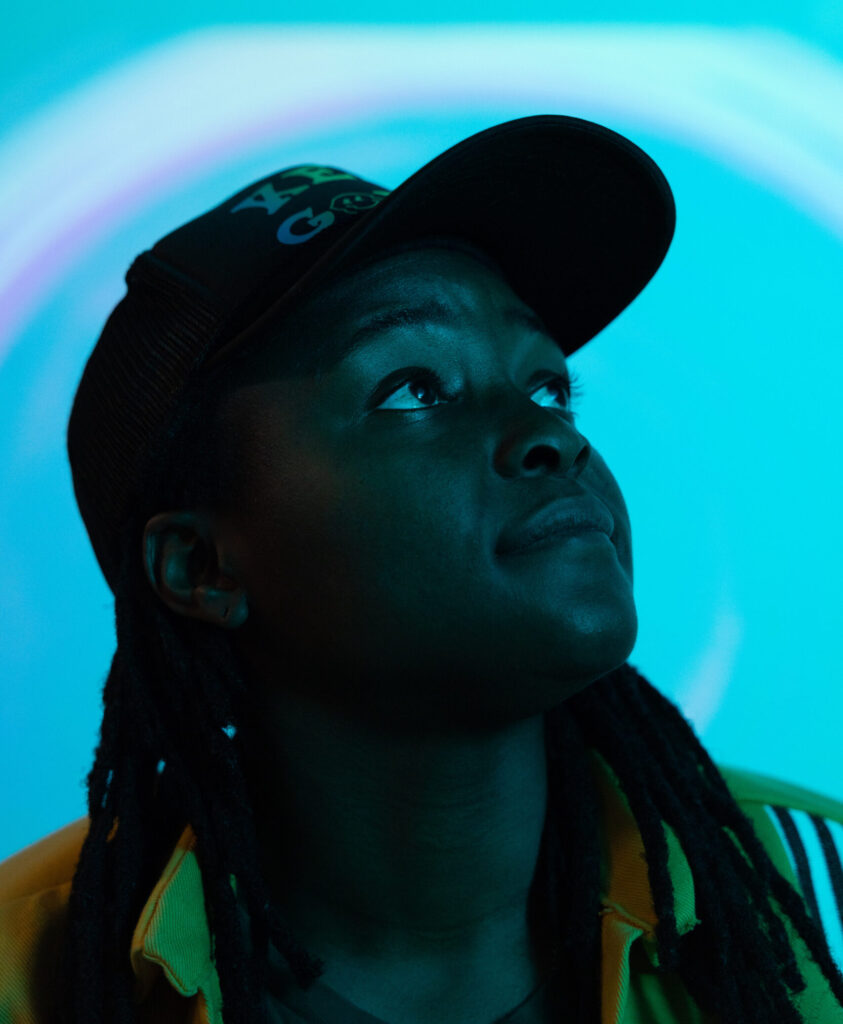
Sweet July spoke with Oladokun about navigating the music industry, how she defines and celebrates Pride, and what it means to identify as queer.
How do you celebrate Pride and why is it so important?
Joy Oladokun: For me, Pride is about standing in the fullness of who you are. I grew up in a small town, closeted for a really good portion of my life. The Pride festivals and events were the first moments where I was able to say, “this is who I am,” in its fullness. I’m just a person who has a family, and watches a ton of Star Wars, and plays video games, and also thinks girls are pretty, which I feel like we can all agree on. Pride for me is about allowing someone to demystify what makes them different. I thought I was maybe like some monster or some super weird person, but it’s beautiful to go to Pride parades and go do karaoke at this lesbian bar after hours, and to just see people from all walks of life and from all over, specifically in the South. It’s always really felt special for people to know that if they don’t feel seen, if they don’t feel like they can be fully themselves, at least during Pride they can celebrate this moment and say there are people like me on this planet.
As our understanding of gender evolves, so does the language and terminology used to define it. What terms(s) or words do you personally feel best represent you?
JO: I use queer as an umbrella term because I consider myself gender non-conforming. Although I lean feminine, my pronouns are she/they. Lesbian works, but it doesn’t always feel like it fits. I use queer for people like Tracy Chapman. I don’t know that Tracy was ever public about relationships or anything like that. We just know that she’s a feminist and maybe dated Alice Walker. It’s not for me to put the term lesbian on her, it’s on her to put the term lesbian on her. So I used to say she didn’t fit the norm of what a woman would fit under at the time, and I think for me it’s the same thing. Whatever decision you made about me at first glance doesn’t totally tell the whole story. And I think that’s why I use queer.
Are there role models that you take a page from in terms of how you navigate the music industry?
JO: I feel like Tracy Chapman is an easy hero. I play the guitar because I saw a video of Tracy Chapman playing the guitar, and I feel like it would be irresponsible of me not to say that. Dolly Parton was so nice. She’s the last hero of mine that I met. I’ve had a weird few years—I’ve learned a lot about how human all of my heroes are. There are people that I’m just like, “Thank you for your kindness and thank you for championing me and standing by me,” and I’ll always let those people know directly, one to one, when I feel like they’ve been genuine to support me, because it is a weird job.
I think that sometimes it’s easy to support someone publicly, but not make any effort outside of that to give them any help. I come from a culture and a world where—and I’m challenging myself on this right now—it’s like, what does it mean to support and champion other artists? I feel so blessed to have been able to work with amazing people, and to meet amazing people. My role models are the people who hold on to their humanity while navigating a really, really tough industry.
Who and how we love is such a prevalent theme in your music. How do you intentionally and authentically represent love in your songs?
JO: One of the things that angry white dudes say on the internet all the time is that I talk too much about my sexuality, and it’s interesting because I don’t feel like I talk about it that much. I feel like when I am bringing it up, it’s in the sense of bridge building. A conversation that I had with my parents a lot when I was coming out of the closet—my parents have been together 30+ years—was if you can understand what it’s like to love each other, you can understand how I [could] potentially feel that [with] another woman. Once I was able to bridge that gap, they were like, “Oh, we get it.” They watched the Netflix documentary [A Secret Love] about the softball lesbians, and then they’re like, “Oh, we get it. You fall in love, it’s just different than we’re used to understanding.”
For me, sharing the normalcy of my life experiences has been really, really important—to say, “Yeah, I fall in love like you do.”
What advice would you offer to anyone seeking to achieve the transparency and authenticity that you’ve been able to create for yourself?
JO: I think my biggest advice is, start with yourself. Own and hold that truth within yourself. Then, it’s just about taking that truth and repeating it out loud for people. I think that sometimes in this day and age, we feel rushed to come to conclusions about who we are. [When] you can [say], “This is who I am. This is how I feel. This doesn’t change anything about my value in the world,” then you can withstand anything.
This interview has been edited and condensed for clarity.
